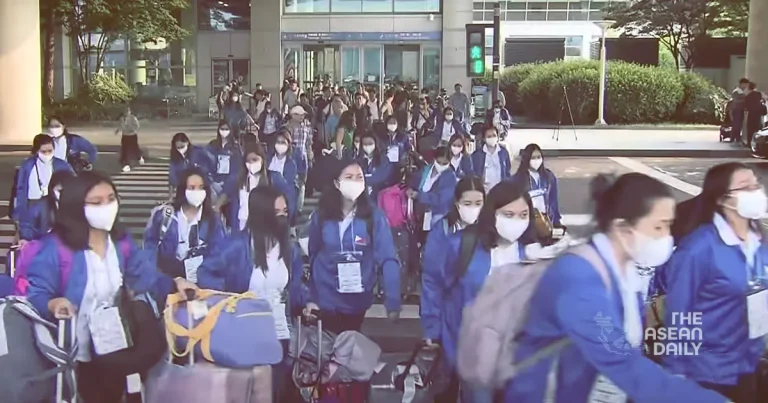9-10-2024 (SEOUL) A groundbreaking pilot programme bringing Filipino domestic workers to South Korea is poised to offer participants substantially higher wages than similar roles in other parts of Asia, South Korean officials have revealed.
The initiative, launched in early September, has placed 98 Filipino workers in households across Seoul, where they serve as full-time or part-time carers. After completing a rigorous four-week training course, these workers can expect to earn an average monthly salary of approximately 1.8 million won (US$1,340) following their first month of employment.
The programme guarantees each worker a minimum of 30 hours of work per week, which translates to a base monthly pay of 1.54 million won for September. However, those willing to work up to the maximum allowed 52 hours per week could see their earnings soar to as much as 2.29 million won (US$1,700), inclusive of overtime and holiday pay.
These figures stand in stark contrast to the remuneration offered in other Asian cities known for employing foreign domestic helpers. In Hong Kong, for instance, the monthly minimum wage for domestic helpers was recently increased to HK$4,990 (US$642) , a mere fraction of what their counterparts in South Korea can potentially earn.
According to the Seoul Metropolitan Government, the majority of workers currently enrolled in the programme are exceeding the minimum work hours, with 85 out of 98 clocking in over 40 hours weekly. The exact wages are set to be finalised mid-month, but early indications suggest that the programme is delivering on its promise of competitive pay.
This initiative forms part of a broader strategy spearheaded by Seoul Mayor Oh Se-hoon to address South Korea’s looming fertility crisis. By providing reliable and affordable childcare options, the city hopes to alleviate some of the pressures faced by working parents.
However, the programme has not been without its challenges. In September, officials lost contact with two workers who reportedly left for higher-paying jobs in Busan, potentially violating South Korea’s immigration laws. This incident prompted an emergency meeting to revise programme rules, resulting in changes such as allowing workers to receive wages twice a month instead of once and extending visa durations beyond the initial trial period.
Looking ahead, there are plans to significantly expand the programme by hiring an additional 1,200 Filipino workers next year. Yet, concerns linger about the high costs associated with employing these workers and the potential for an increase in undocumented migrants.
At present, the monthly expense of employing a full-time carer, including social insurance, stands at 2.06 million won – a sum that many Korean households, with an average monthly income of 5.44 million won, find steep. Moreover, with the legal minimum wage set to increase to 100,030 won next year, participating firms are expected to raise their service charges, further complicating the financial landscape for potential employers.




